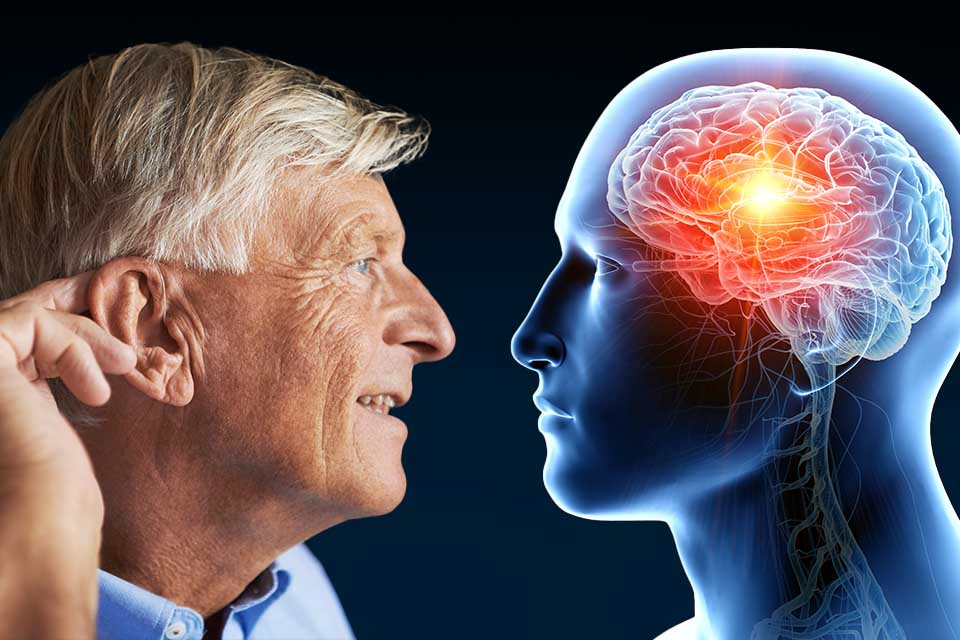What Are the Symptoms of Hearing Loss?
by Admin
Posted on 14-07-2022 09:37 AM

Spoken language ability [ edit ]
Most people with hearing loss have
post
-lingual deafness. They acquired spoken language before their hearing was diminished. A medication side effect, trauma, infection, or disease may have caused losing their sense of hearing. In most people with post-lingual deafness, hearing loss onsets gradually. Household members, friends, and teachers may have noticed a problem before they acknowledged the disability. Depending on the severity of hearing loss, the individual may have had to use hearing aids, receive a cochlear implant, or learn how to lip-read. People who experience hearing loss face different challenges, depending on when it occurs and how long it takes to develop.

What Causes Hearing Loss?
Overview
a person is said to have hearing loss if they are not able to hear as well as someone with normal hearing, meaning hearing thresholds of 20 db or better in both ears. It can be mild, moderate, moderately severe, severe or profound, and can affect one or both ears. Major causes of hearing loss include congenital or early onset childhood hearing loss, chronic middle ear infections, noise-induced hearing loss, age-related hearing loss, and ototoxic drugs that damage the inner ear.
The impacts of hearing loss are broad and can be profound. They include a loss of the ability to communicate with others delayed language development in children, which can lead to social isolation, loneliness and frustration, particularly among older people with hearing loss.
Seventeen percent of americans have some degree of irreversible hearing loss. Harvard stem cell institute scientists want to bring it back. The ears are sensitive instruments that can be permanently damaged by such ubiquitous sounds as the roar of a motorcycle engine, the bang of a firecracker, or the din of construction work. The cells that collect sound information from the environment and send it to the brain are called hair cells. We are born with about 11,000 hair cells in each ear, and they need to last. We experience the slow progression of hearing loss as these fragile cells die due to excessive noises, exposure to certain drugs, and aging.
People who have loved ones with hearing loss and don’t have hearing loss themselves are often eager to understand what hearing loss sounds like. Hearing loss comes in varying degrees and forms such as severe, moderate, and mild hearing losses. Simply wearing earplugs to clock out sound won’t provide the right information. You can try a hearing loss simulator to understand the complex nature of hearing loss.
Sudden hearing loss—may be caused by a virus; you should see an ent (ear, nose, and throat) specialist, or otolaryngologist, for urgent treatment that could help recover some hearing aging—gradual snhl that cannot be reversed (most common) acoustic trauma—exposure to loud noises (e. G. , industrial/machinery or explosion/gunfire close to the ear; can be prevented with proper protection) head trauma or abrupt changes in air pressure—this can cause the space that contains inner ear fluid to rupture autoimmune inner ear disease —the body’s immune system attacks the inner ear and causes progressive hearing loss in both ears ménière’s disease —a condition characterized by fluctuating hearing loss, dizziness, ear fullness, or ringing in the ears (called tinnitus ).
What Are the Symptoms of Hearing Loss?
Another name of echinacea is american coneflower, one of the popular herbs which are full of health benefits. It not only boosts the immune system but fights the symptoms of a cold as well, it counters the other infection which can further lead to hearing loss. This herb houses the variety of antibiotics further which helps in fighting the diseases or germs that cause inner ear infections. Additionally, it reduces the inflammation of sinus and ear tissues as well.